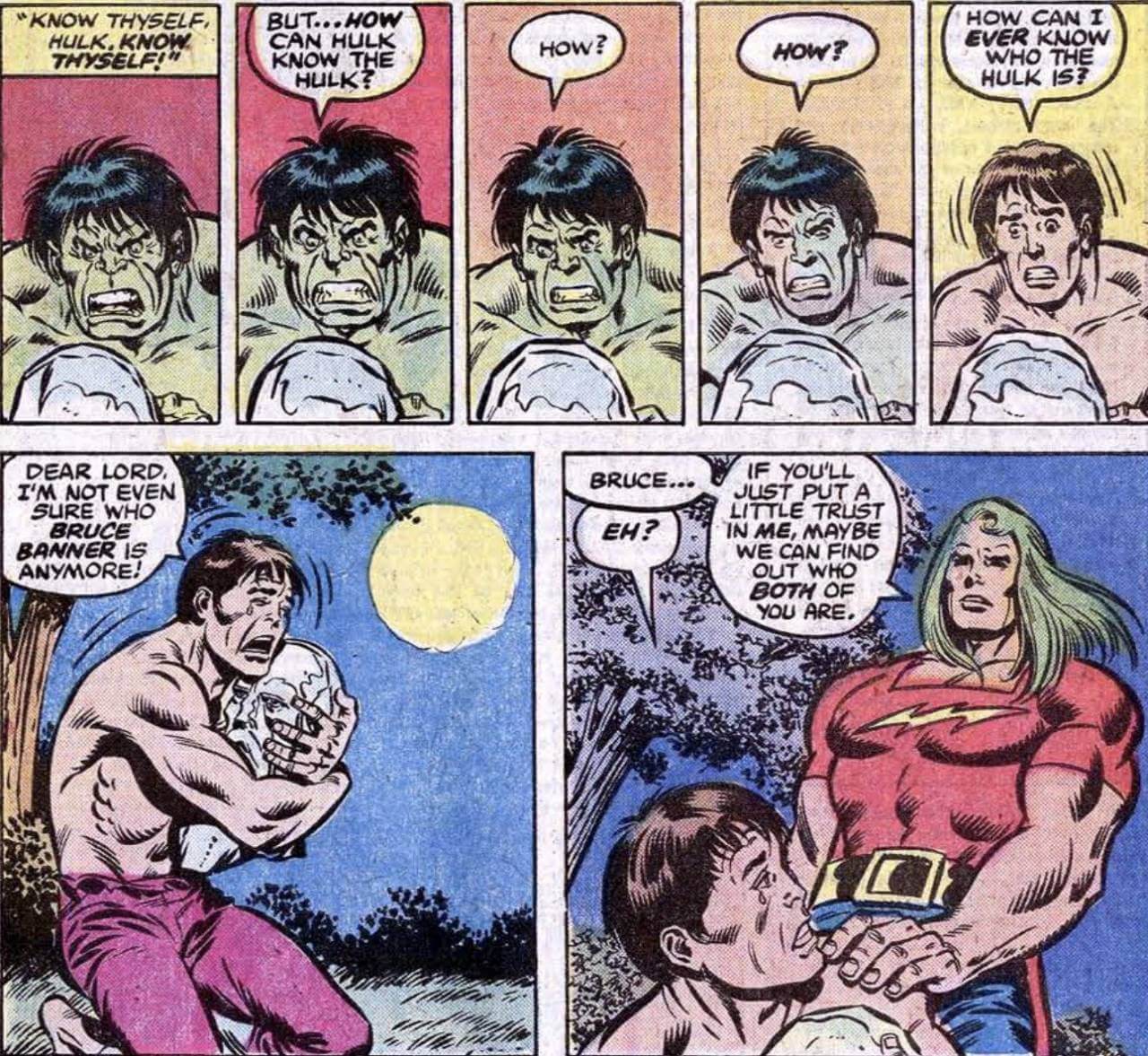
Hulk #227 is one of my favorite issues of all time, but it starts on the last page of #226, where, after voluntarily becoming Hulk again to stop The Leader, Bruce Banner breaks down and cries, cradling the head of a statue of Socrates, that he does not know who he is.
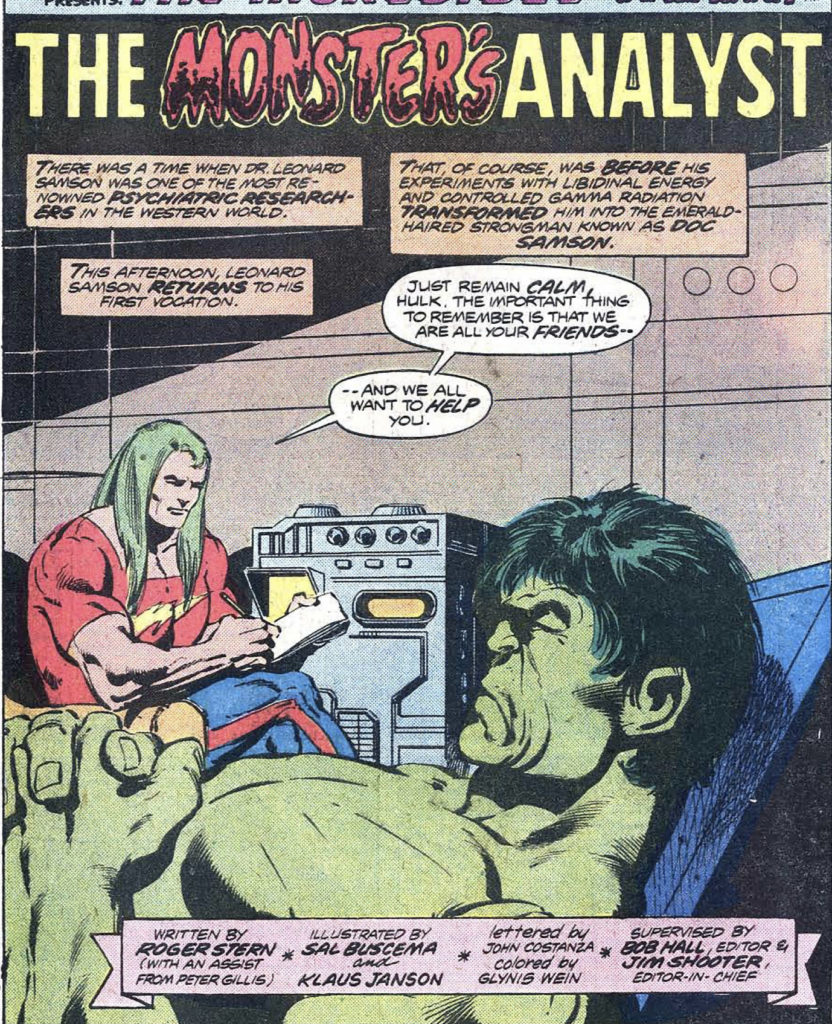
The issue, titled, “The Doctor’s Analyst,” involves Doc Samson psychoanalyzing Banner, as it has become increasingly clear that Banner and Hulk are two distinct beings occupying the same physical space. This is the issue where we first see Banner as a baby…
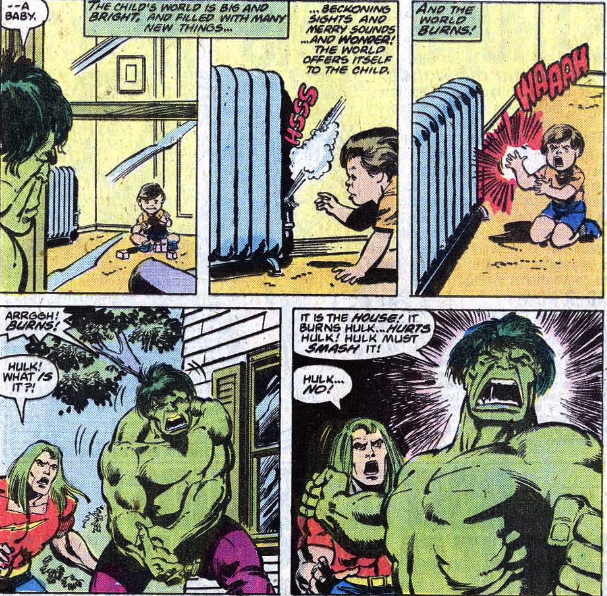
…And then we see him having a High School experience fairly similar to Peter Parker’s-nerd, bullied, etc. It’s just fascinating to me that ten years after the creation of this character, this is the first time we’re learning about his childhood. Bill Mantlo, nearly 100 issues later, would take this to the next level suggesting that Banner was abused as a child, adding layers as part of an explanation for why Banner could essentially create a new personality by using rage to dissociate from his past…
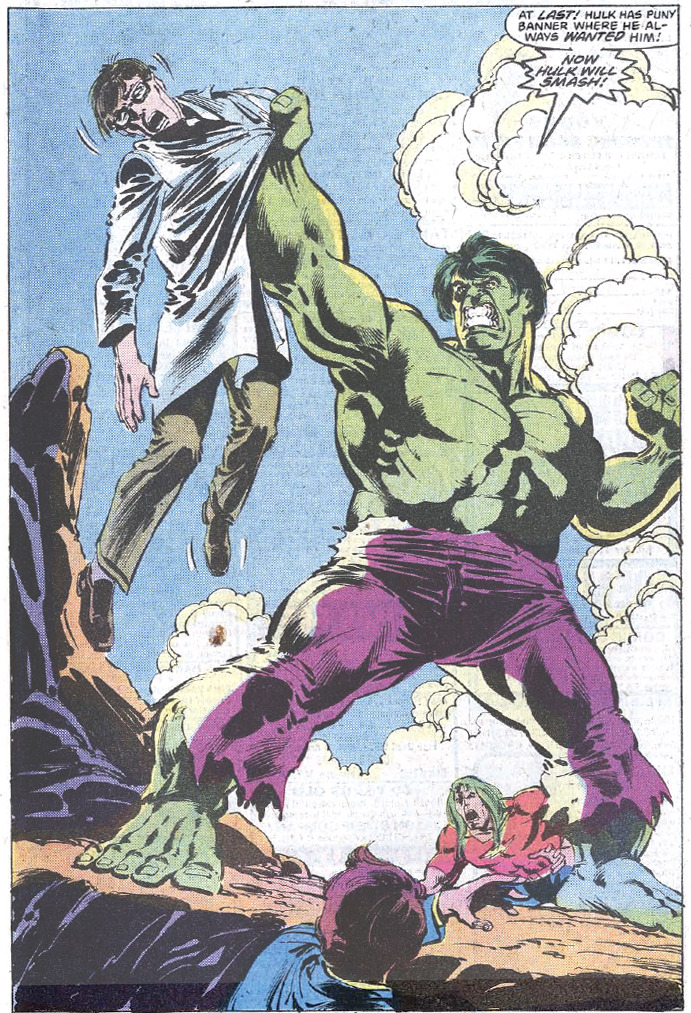
…And then putting that in the context of his origin.

This is the kind of cool stuff comics can do!
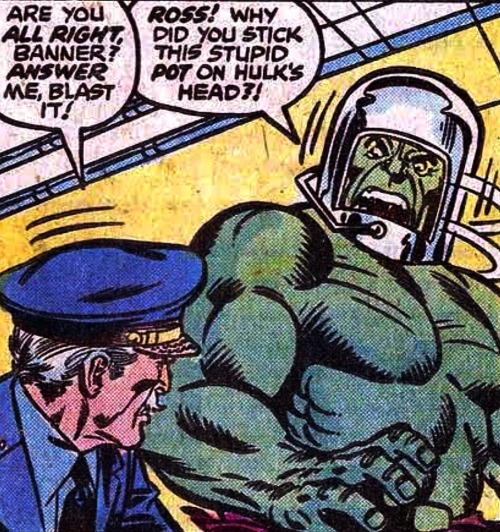
But…
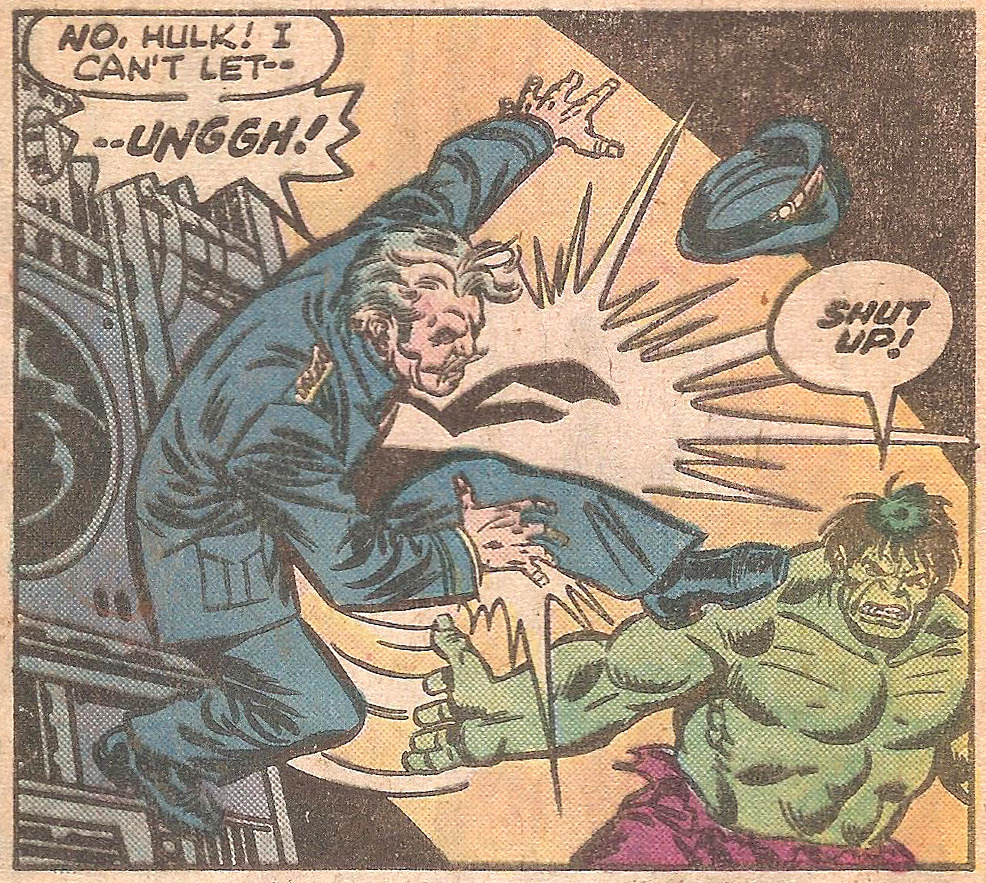
How is it an old man can take a harsh swat from Hulk?
Anyway, Hulk is keeping it green for Samson’s process, which means he spends the night at Gamma Base.

Moonstone shows up to steal some stuff from Gamma Base, and she’s actually pretty ingenious.
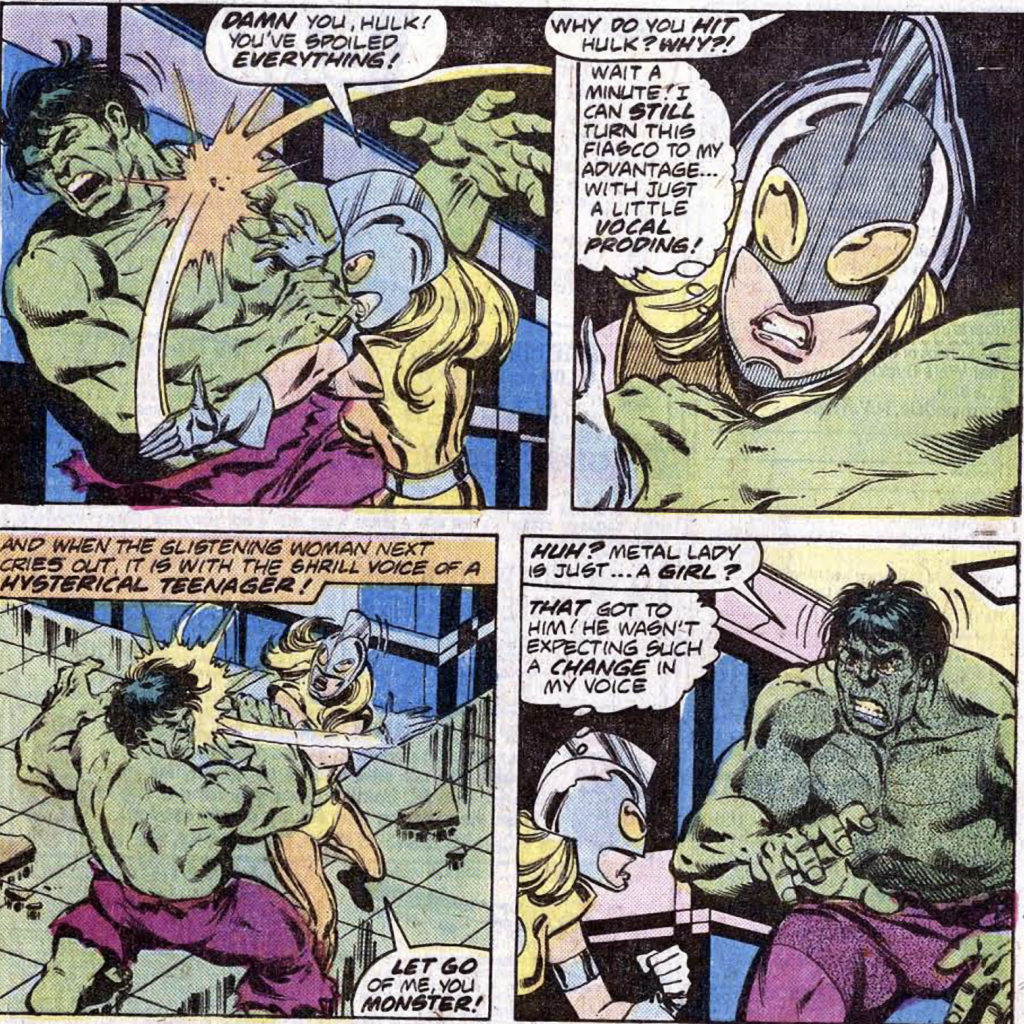
This is the first appearance of the new Moonstone, aka Karla Sofen, and in her day job she is a psychiatrist.

She basically uses psychology to keep Hulk at bay for the entire issue.
She’s here to steal stuff on behalf of The Corporation, that murky criminal enterprise that’s been weaving in and out of Hulk and Captain America comics. Samson doesn’t know that, though—and doesn’t figure it out in these issues—so when Hulk knocks her out, Samson decides Hulk is too dangerous to study. Hulk runs off, and we’re back to the Hulk-as-fugitive status quo. It’s too bad—I could have done with several more issues of Hulk learning about himself. But back in the 1970s, Jim Shooter’s operating principle was to have quick stories, full of action and events—the opposite of decompressed storytelling. It almost like he was in a hurry to establish a huge amount of continuity. Which he did—under his reign, artists may have found creative rights to be in danger, but it was unquestionably one of the best times to be reading Marvel comics.
Very good writing by Roger Stern, bookending the “positive” use of psychology from Samson with the criminal exploitation of Moonstone.
Peter Gillis gets credit for script assistance.

Interesting Don’t recall these subplots at all.